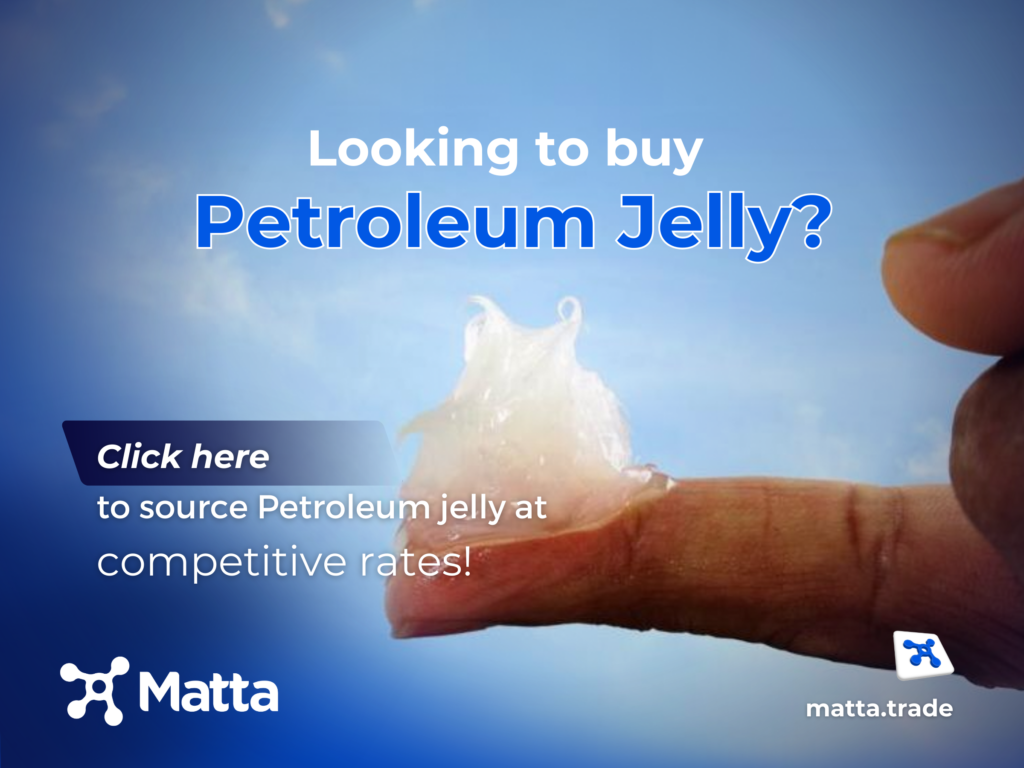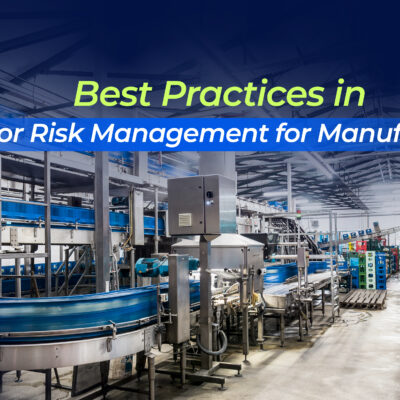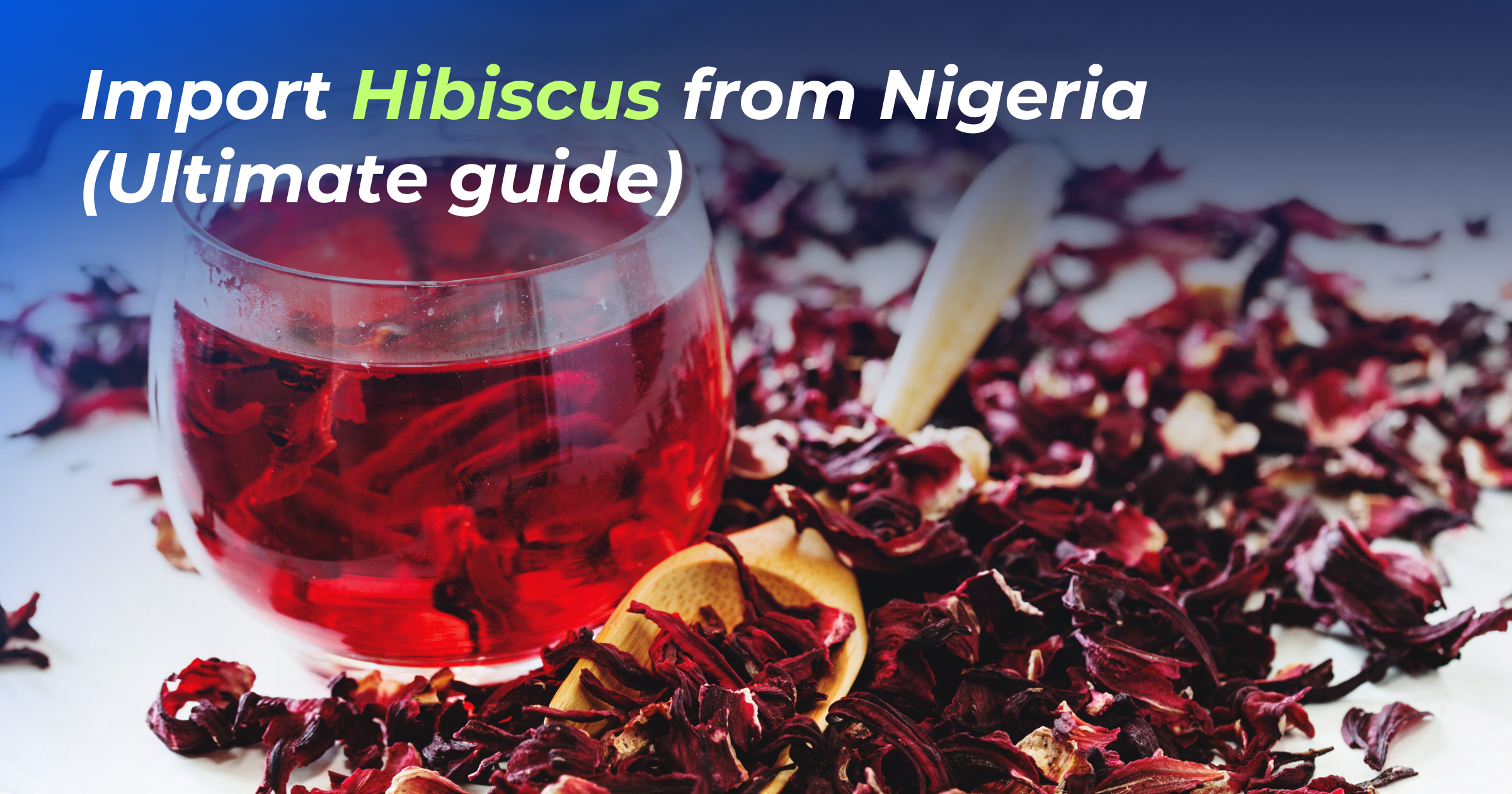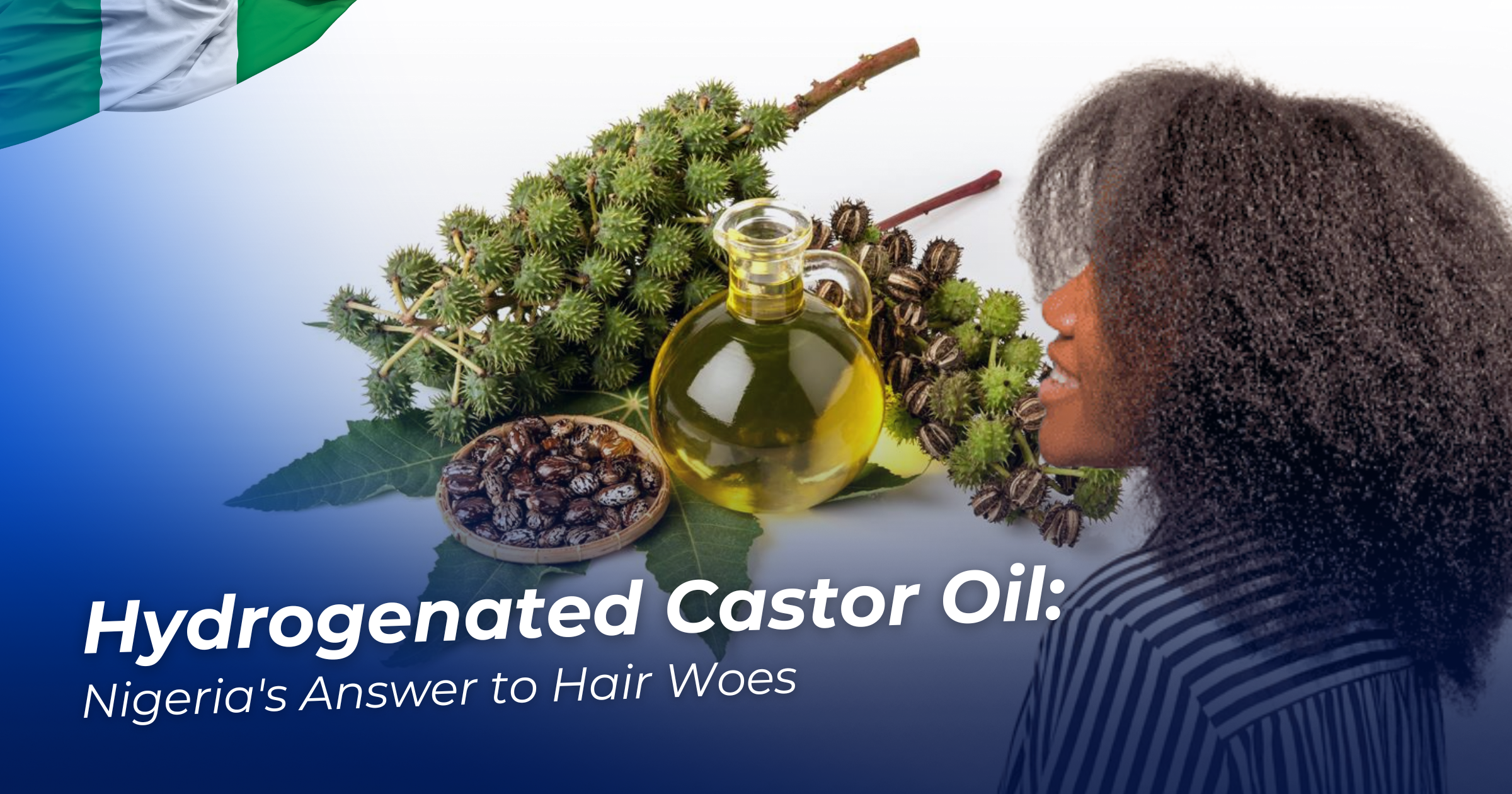Hey there, fellow chemical aficionados and industry pros! Welcome to an in-depth exploration of the Petroleum Jelly industry in Nigeria—a sector that has proven resilient and innovative.
Firstly, as professionals and stakeholders in the chemical industry, understanding the complexities of this market is not just beneficial; it’s imperative. Petroleum Jelly, a seemingly simple byproduct of the oil industry, has far-reaching applications that extend beyond personal care into various industrial sectors.
However, this comprehensive guide aims to provide a 360-degree view of the Petroleum Jelly landscape in Nigeria. From regulatory frameworks to market dynamics and production processes to future trends, this article is a definitive resource for anyone vested in or intrigued by this versatile product.
Understanding this history is crucial. It’s not just a story of a product; it’s a narrative that encapsulates the entrepreneurial spirit of a nation and the transformative power of innovation. As we delve deeper into the intricacies of the Petroleum Jelly industry in Nigeria, this historical lens will provide us with invaluable perspectives.
Petroleum Jelly in Nigeria
Now, let’s zoom in on Nigeria, a nation with one of the largest oil reserves in Africa. A byproduct of oil would naturally find its home here, right? It did, but not without its share of challenges and triumphs.
In Nigeria, the introduction of Petroleum Jelly can be traced back to the early post-independence era, when the country was taking its first steps in industrialization. Initially, the market was flooded with imported brands, but as the years rolled by, local entrepreneurs saw the untapped potential. They envisioned a market that could sustain home-grown brands fueled by Nigeria’s rich oil reserves.
The journey wasn’t smooth sailing. Regulatory hurdles, quality concerns, and market acceptance were significant barriers. However, the resilience of Nigerian entrepreneurs, coupled with a supportive regulatory framework, gradually shifted the scales. Today, Nigeria doesn’t just consume Petroleum Jelly; it produces, packages, and even exports it to neighboring countries.
Applications of Petroleum Jelly
Petroleum Jelly excels across diverse sectors. In personal care, it’s a go-to for moisturizing and makeup removal. Medically, it aids wound healing and skin protection. Though not ideal for all hair types, it offers relief for dry scalps and extreme hair dryness.
Industrially, it ensures smooth machinery operation and prevents corrosion. In the food industry, it acts as a sealing agent and lubricant, preserving freshness and enhancing efficiency. This versatile product remains essential across personal, medical, industrial, and food-related applications.
Petroleum Jely offers a surprising niche of applications. It aids tattoo healing, aquarium sealing, and musical instrument lubrication. It facilitates jewelry insertion, while it reduces friction for athletes. Furthermore, it prevents squeaking in doors, corrosion in battery terminals, and even as a fire starter with cotton balls. Similarly, it creates soft focus effect in photography, with artists using it as watercolor painting resistance. This makes it invaluable across various industries.
Market Dynamics in the Nigerian Petroleum Jelly Sector
The Petroleum Jelly market in Nigeria is a vibrant and ever-changing landscape. It’s not just a simple supply-and-demand equation; it’s a complex interplay of various factors influencing the product’s production and consumption.
Demand Drivers
The demand for Petroleum Jelly is fueled by its versatility, ensuring a steady market. Additionally, the growing awareness of skincare and personal hygiene has led to an uptick in demand.
On the supply side, Nigeria’s refining capacity often falls short of the demand, leading to a reliance on imports for raw materials. This creates a ripple effect on pricing and availability.
Competitive Landscape
Local brands have the advantage of lower production costs, while international brands often leverage their global reputation. This creates a competitive but healthy environment where innovation and quality are key differentiators.
Price Sensitivity and Consumer Behavior
In a price-sensitive market like Nigeria, cost plays a significant role in consumer choices. However, a growing segment of consumers is willing to pay a premium for quality, opening up opportunities for niche and specialized products.
Economic Indicators
The fluctuating exchange rates, and inflation rates also play a role in shaping the market. Companies must be agile, adjusting their pricing strategies to remain competitive while ensuring profitability.
Import and Export Trends
Nigeria’s petroleum jelly industry operates within a global market, driven by imports from countries like India, China, and the United States worth $52.1m in 2021 placing 81st globally, and exports to neighbouring African countries worth $76,900 in the same year, ranking 19th globally.
Import growth is driven by rising demand, but local production could reduce import reliance. Also, currency fluctuations, regulatory changes and trade agreements affect market dynamics. However, trends such as demand for eco-friendly products further influence trade activities.
Additionally, economic factors like GDP growth and consumer spending shape import and export activities. Logistical challenges—port congestion, shipping delays, and transportation costs—affect profitability. Staying ahead of these factors enables businesses to navigate this evolving landscape efficiently.
Nigeria’s Petroleum Jelly Regulatory Environment
Navigating the regulatory landscape in Nigeria is akin to walking a tightrope. On one side, you need innovation and growth, and on the other, you need the imperative for safety and quality control.
NAFDAC and SON: The Regulatory Bodies
The National Agency for Food and Drug Administration and Control (NAFDAC) and the Standards Organisation of Nigeria (SON) are the primary bodies overseeing the quality of Petroleum Jelly products. Evidently, they set the standards and conduct inspections to ensure that products meet the safety and quality benchmarks.
Also, obtaining the necessary certifications from NAFDAC and SON is a rigorous process that involves multiple stages of quality checks and documentation. Companies must adhere to Good Manufacturing Practices (GMP) and submit their products for periodic reviews.
Regulatory Challenges
While the regulatory framework aims to ensure product safety and quality, it has challenges. Issues like bureaucratic delays and the high cost of compliance can be stumbling blocks for smaller manufacturers. Yet, these challenges also serve as a quality filter, ensuring only committed and capable companies thrive in the Nigerian market.
Challenges and Opportunities in Nigeria’s petroleum Jelly sector
With innovation, challenges become opportunities to grow. The petroleum jelly sector in Nigeria faces several challenges. However, these challenges should inspire anyone willing to become a stakeholder in the market- At the end of this section, you’ll see why.
Now, let’s highlight some challenges and opportunities present in this sector;
Challenges in Detail
Regulatory Complexity
While regulations are essential for maintaining quality and safety, they can also be a labyrinthine maze for manufacturers. The cost of compliance, including fees for certifications and inspections, can be a significant financial burden. Moreover, the time-consuming nature of obtaining approvals can delay product launches and disrupt supply chains.
Supply Chain Inefficiencies
Nigeria’s infrastructure, particularly in transportation, can be a significant hurdle. Ports are often congested, and road networks are not always in the best condition. These inefficiencies can delay raw material deliveries and finished goods, affecting costs and customer satisfaction.
Market Saturation
The Nigerian market is flooded with local and international Petroleum Jelly brands. This saturation makes it challenging for new entrants or even existing players to gain a significant market share. Companies often find themselves in price wars, which can erode profit margins.
Quality Consistency
Maintaining consistent quality is another challenge, especially when different batches of raw materials come with their own characteristics. This inconsistency can affect the final product’s quality, leading to potential reputational damage.
Economic Instability
Nigeria’s economic landscape is often volatile, with fluctuating exchange rates, inflation, and instability making it difficult for companies to plan long-term, affecting pricing and expansion strategies.
Consumer Skepticism
Due to the influx of substandard products in the past, Nigerian consumers have skepticism regarding locally produced goods. Overcoming this perception barrier requires significant investment in marketing and consumer education.
Environmental Concerns
With the global shift towards sustainability, there’s increasing scrutiny on the environmental impact of manufacturing processes. Moreover, companies are now expected to adopt greener practices, which may require an overhaul of existing systems and additional costs.
Each of these challenges presents complexities that companies in the Petroleum Jelly industry in Nigeria must navigate. However, as we’ll explore in the next section, these challenges also pave the way for unique opportunities.
Opportunities in Detail
Regulatory Compliance as a Competitive Advantage
Opportunity: While regulatory hurdles can be challenging, they also serve as a quality filter. Companies that successfully navigate this landscape can use compliance as a selling point.
How to Seize It: Invest in obtaining all necessary certifications and make this a cornerstone of your marketing strategy. Highlight your product packaging and marketing materials compliance to build trust with consumers.
Streamlining the Supply Chain
Opportunity: Supply chain inefficiencies are a challenge, but they also present an opportunity for companies that can optimize their logistics.
How to Seize It: Partner with reliable logistics companies and invest in technology to track real-time shipments. A streamlined supply chain can be a significant competitive advantage.
Niche Market Identification
Opportunity: The saturated market means there’s room for specialized products that meet specific consumer needs.
How to Seize It: Conduct market research to identify gaps in the market. Develop specialized formulations that cater to these needs and market them aggressively.
Quality as a Differentiator
Opportunity: Consistent quality can set a brand apart in a market skeptical of locally produced goods.
How to Seize It: Implement stringent quality control measures and consider third-party testing to validate your product’s quality. Use these quality certifications in your marketing to build consumer trust.
Hedging Against Economic Volatility
Opportunity: Economic instability is a challenge, but it also offers opportunities for savvy financial planning.
How to Seize It: Consider options like forward contracts to hedge against currency risks. Diversify your product line to cater to different economic segments, providing a buffer against market fluctuations.
Leveraging the Green Movement
Opportunity: As consumers become more environmentally conscious, there’s an opportunity to position your brand as eco-friendly.
How to Seize It: Transition to greener manufacturing processes and sustainable packaging. Publicize these efforts through your marketing channels to attract a more conscious consumer base.
By understanding these opportunities and implementing strategies to seize them, companies in the Petroleum Jelly industry in Nigeria can not only navigate the challenges but thrive amidst them.
Quality Control Measures in Petroleum Jelly Production
Quality control is the backbone of any successful product, and it’s no different in the Petroleum Jelly industry. Ensuring that the product meets the highest standards is not just about consumer satisfaction; it’s also about adhering to regulatory guidelines and setting industry benchmarks.
Raw Material Testing
Before the production process even begins, the raw materials are subject to rigorous testing. This ensures that only the highest quality ingredients go into making the Petroleum Jelly.
In-Process Quality Checks
During the production process, samples are continually taken for testing. This helps identify deviations from the set quality standards early, allowing for timely corrective actions.
Final Product Testing
Once the Petroleum Jelly is produced, it undergoes a final round of quality checks. This includes tests for texture, consistency, and purity, among others.
Certification
Products that meet the quality criteria are certified by relevant authorities, providing an additional layer of assurance for consumers.
Continuous Improvement
Quality control is not a one-time process but a continuous cycle. Feedback from consumers, retailers, and internal audits are used to make ongoing improvements.
Quality control in Petroleum Jelly production is a multi-faceted approach involving various testing and certification stages. It’s a meticulous process crucial for ensuring that the product that reaches the consumer is of the highest quality.
Innovation and Trends in Nigeria’s petroleum Jelly sector
The Petroleum Jelly industry is evolving with new innovations and untapped markets driving its growth. Eco-friendly formulations are emerging, addressing sustainability demands without compromising effectiveness. In specialized medical fields, Petroleum Jelly is being explored for advanced wound care and drug delivery systems. Cosmetic applications are expanding, with premium products enhancing its moisturizing power through added active ingredients.
Industries now require tailored formulations to meet unique needs, while stricter food safety standards are inspiring safer versions for food processing. Surprisingly, tech gadgets are also integrating Petroleum Jelly for sealing and cooling functions.
Personal care customization trends fuel demand for products designed for specific skin types, while growing markets in developing countries present new opportunities. E-commerce and direct-to-consumer models are reshaping distribution channels, catering to consumers’ online shopping preferences. Meanwhile, the DIY movement, amplified by social media, drives fresh interest in using Petroleum Jelly for home care and maintenance tasks.
The Petroleum Jelly industry in Nigeria is at an exciting crossroads, with numerous opportunities for innovation and growth. Companies that can adapt and evolve are the ones that will not just survive but thrive in this burgeoning market.
Rounding up
In Nigeria’s ever-evolving landscape of the Petroleum Jelly industry, one thing remains constant: the need for reliable, in-depth information to navigate its complexities. From its rich history and intricate production processes to its multifaceted applications and market dynamics, Petroleum Jelly continues to be a cornerstone in various sectors. As we’ve explored, challenges and opportunities coexist, painting a picture of an industry that is as promising as it is demanding. Whether you’re an importer, a manufacturer, or simply an enthusiast, understanding the nuances of this industry is crucial for making informed decisions. As we look to the future, emerging trends and untapped markets offer a glimpse of the untold potential. So, here’s to the Petroleum Jelly industry in Nigeria—may it continue to grow, innovate, and exceed our expectations.
Frequently Asked Questions (FAQs)
- What is Petroleum Jelly?
- Petroleum Jelly is a semi-solid mixture of hydrocarbons primarily used for its lubricating and moisturizing properties.
- Where is Petroleum Jelly mainly produced in Nigeria?
- Most of the Petroleum Jelly production in Nigeria is concentrated in industrial zones near major cities like Lagos and Port Harcourt.
- What are the primary uses of Petroleum Jelly?
- It’s widely used in personal care products, medical applications, and various industrial processes.
- Is Petroleum Jelly safe for consumption?
- No, Petroleum Jelly is not edible and should not be ingested.
- How is the quality of Petroleum Jelly regulated in Nigeria?
- Quality is regulated by NAFDAC and SON, ensuring that the product meets specific safety and quality standards.
- What are Petroleum Jelly’s import duties?
- Import duties can vary but are generally guided by the Nigerian Customs Service and depend on the country of origin.
- Who are the major players in the Nigerian Petroleum Jelly market?
- Companies like Unilever, PZ Cussons, and local manufacturers are key players in the market.
- How is Petroleum Jelly packaged for retail?
- Depending on the target market, it’s commonly packaged in plastic or glass jars, tubes, or sachets.
- Are there eco-friendly alternatives to Petroleum Jelly?
- Yes, products like beeswax and plant-based oils are emerging as eco-friendly alternatives.
- What are the emerging trends in the Petroleum Jelly industry?
- Eco-friendly formulations and specialized industrial applications are among the emerging trends.
- How does the exchange rate affect the Petroleum Jelly market?
- Fluctuations in the exchange rate can impact the cost of imports, affecting market prices and profitability.
- What challenges does the Petroleum Jelly industry face in Nigeria?
- Challenges include regulatory hurdles, quality control, and the high cost of production due to fluctuating exchange rates, energy, and logistical issues.





